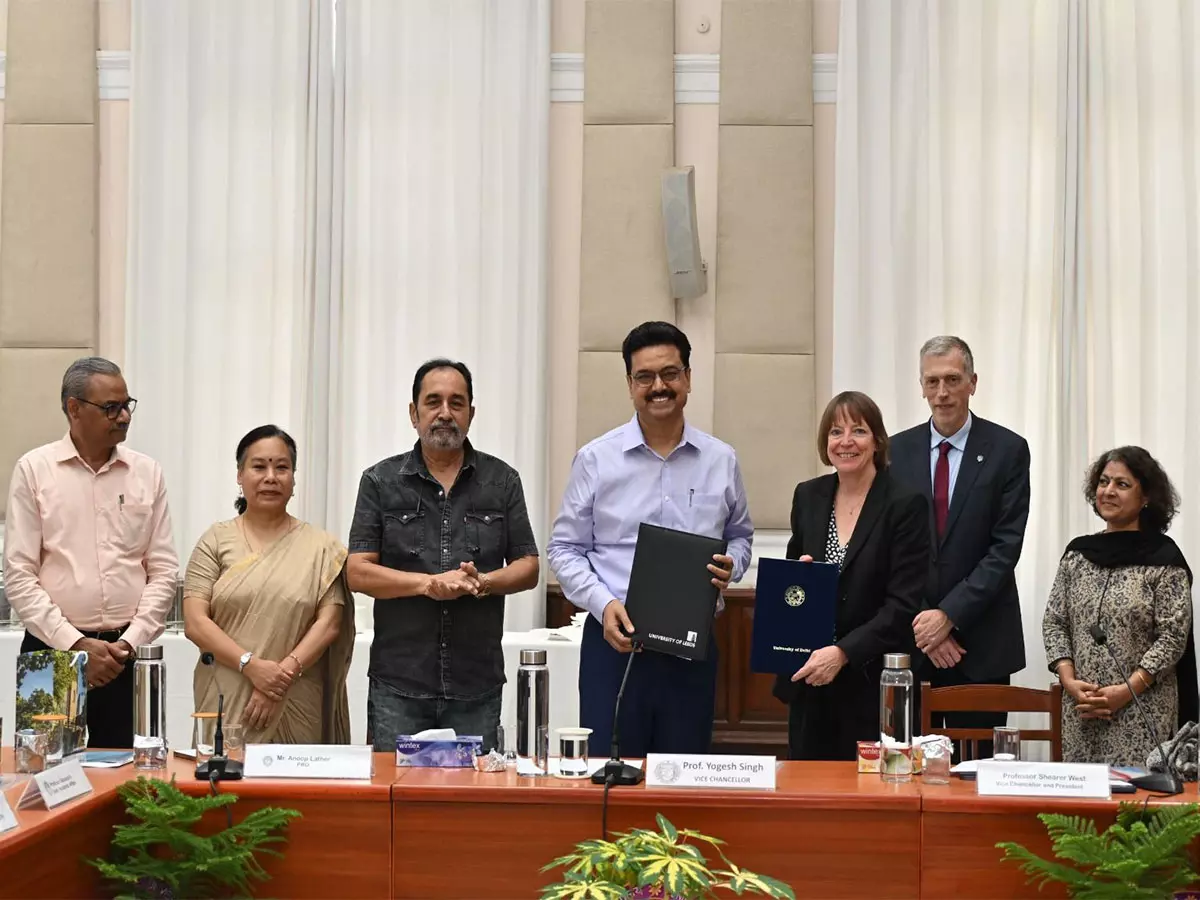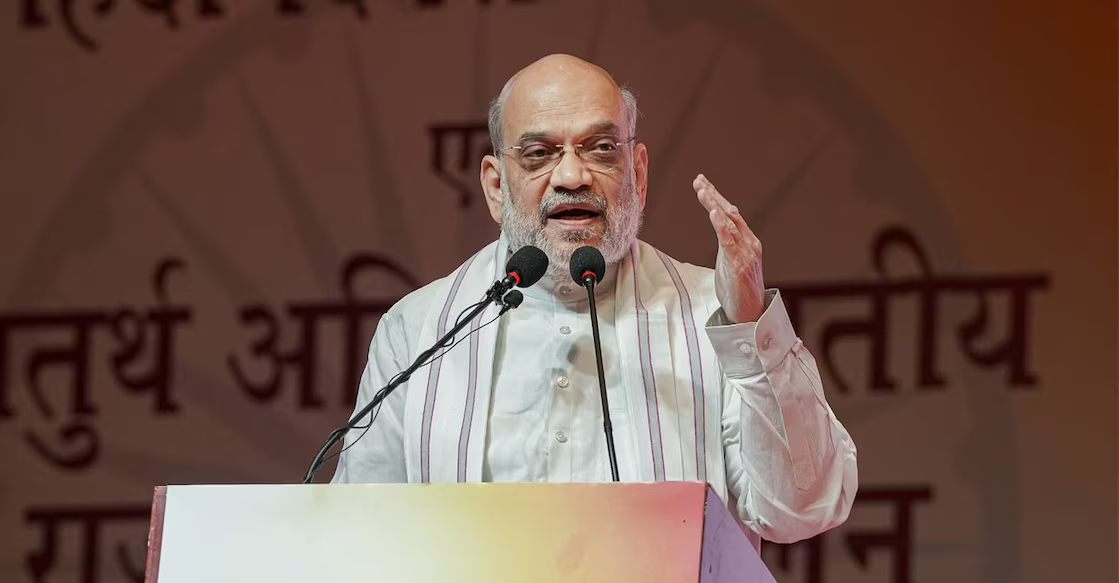
DU signs MoU with University of Leeds to boost research, student exchange
text_fieldsNew Delhi: The University of Delhi (DU) has signed a memorandum of understanding (MoU) with the University of Leeds, United Kingdom, to enhance cooperation in research and promote student and faculty exchange programmes.
The MoU, aimed at strengthening international academic ties, was formally exchanged on Thursday at the Vice Regal Lodge, University of Delhi. The agreement was signed between DU Vice Chancellor Yogesh Singh and University of Leeds President and Vice Chancellor Shearer West, in the presence of senior officials from both institutions.
According to an official statement issued by DU, the partnership is expected to serve as a vital resource for expanding academic linkages, benefiting students and faculty members at both universities. It will provide a framework for active research collaboration and facilitate mobility through faculty and student exchange initiatives.
The collaboration aligns with India’s National Education Policy (NEP) 2020, which promotes internationalisation in higher education. Under the NEP’s twinning programme, students from both institutions will have the opportunity to spend a semester at the partner university. This exchange aims to offer global academic exposure and enrich the overall learning experience.
During the ceremony, Vice Chancellor Singh highlighted the wide range of collaborative opportunities that could be explored through this partnership. He also emphasised the importance of appointing international faculty as adjunct professors at DU to offer students and faculty a more global academic perspective.
University of Leeds President Shearer West noted the growing interest among their postgraduate and doctoral students in pursuing academic opportunities in India. She expressed optimism that this MoU would further strengthen student exchange and academic cooperation.
The NEP 2020 encourages Indian institutions to establish partnerships with foreign universities to promote quality education, cultural exchange, and global research collaborations. The twinning model enables students to complete part of their degree abroad while enrolled at a domestic institution, fostering international understanding and academic diversity.
With PTI inputs







